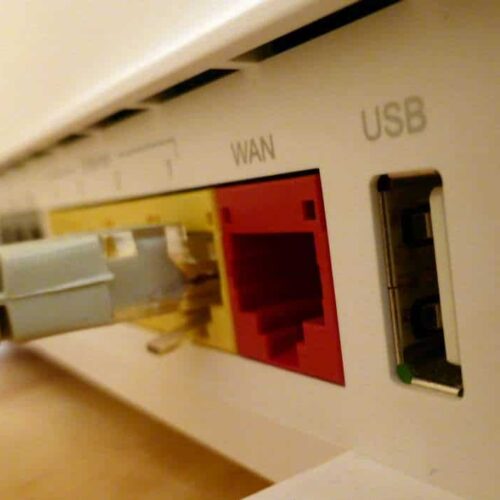Introduction
Freda Jones knows how much fast Internet is worth –tens of thousands of dollars.
Jones owns a real estate company in Manchester, Tennessee, a small town nestled against the Appalachian Mountains about an hour south of Nashville. She’s been trying to sell a house there for more than seven months, but it isn’t getting much interest. The reason: It doesn’t have access to a fiber or cable Internet connection.
“We just reduced it $60,000,” Jones explained last month. “It’s a beautiful property, but it doesn’t work for everyone because of the inaccessibility to broadband.”
AT&T Inc. has refused homeowners’ requests to extend its Internet service to the neighborhood, even though its cables lie less than 100 yards away from some houses, residents there said.
If the house were a few miles down the road in Tullahoma, it would be served by an ultra-fast broadband service run by the city. And it would be worth tens of thousands of dollars more.
While Jones may have to sell this house without Internet on the cheap, she has hope for future sales. In less than two weeks, the Federal Communications Commission, nation’s top Internet regulator, will vote on whether to overturn a state law that prevents Tennessee cities that operate their own broadband networks from expanding to other towns.
Chattanooga, Tennessee, and Wilson, N.C. each filed petitions with the FCC challenging their states’ respective laws. There are almost 400 city-operated broadband networks nationwide. But their expansion is limited because 20 states currently restrict the ability of municipalities to offer or expand Internet service.
If the laws are struck down, Jones could look forward to homes and businesses in Manchester hooking into Tullahoma’s network, which is one of the fastest in the world. Tullahoma has been considering doing just that for years, but has been blocked.
Jones has a message for the five FCC commissioners who will vote on pre-empting the state laws.
“I would like for the officials there to actually come to a community such as ours and see what’s happening,” Jones said, tears in her eyes. “It seems like sometimes that we’re almost in a third-world country because we are isolated, we have no voice, … and the [FCC] needs to start getting us all the means we need to get our community to grow.”
The Center for Public Integrity first reported on the requests in July. FCC Chairman Tom Wheeler appears amenable to the requests.
Wheeler has repeatedly said he would pre-empt state laws that ban or place barriers on cities that want to build or expand broadband networks if he were asked to do so.
President Obama weighed in on the issue last month in a speech in Cedar Falls, Iowa.
“If there are state laws in place that prohibit or restrict these community-based broadband efforts,” Obama said, “we should do everything we can to push back against those old laws.”
AT&T declined to comment about service in Manchester or their position on city-owned broadband networks, as did Charter Communications and Time Warner Cable. They have filed numerous comments with the FCC opposing the agency from blocking the state laws.
CenturyLink, which provides Internet service in Tennessee, North Carolina and much of the United States, said their primary concern is for the taxpayers in the cities that want to operate their own networks.
“The issue is how best to deliver broadband,” said Melissa Newman, head of federal regulatory affairs at CenturyLink in Washington. “We are concerned that taxpayer funded, municipal-type broadband may not be the best use of taxpayer money. … When municipal broadband failures occur, the taxpayer is left on the hook.”
The fight against city-owned Internet networks may just be beginning.
The telecommunications giants including Comcast, AT&T and Time Warner Cable have spent millions of dollars to lobby state legislatures, influence state elections and buy research to try to stop the spread of public Internet services that often offer faster speeds at cheaper rates. AT&T alone spent more than $250,000 on lobbying in Tennessee last year, the Center for Public Integrity reported in August.
In Washington, the money has flowed even more. The top Internet providers and their trade associations spent about $88 million on 568 lobbyists to influence federal lawmakers and regulators, according to the Center for Responsive Politics. That was enough to place the group in the top 12 of all lobbyists. That spending goes to lobby on all kinds of telecommunications issues, not just municipal broadband.
The Center’s report illustrated how municipal broadband service, especially in rural communities, can help boost businesses and create jobs. It contrasted the experience of Tullahoma with Fayetteville, North Carolina, which was thwarted from allowing its residents to tap into the city’s gigabit broadband network by state law.
Tullahoma’s job market has thrived, while Fayetteville’s has stagnated in recent years.
And that’s the point, said Jim Baller, the Washington lawyer who represents Chattanooga and Wilson in challenging the state laws.
“You are not going to attract a business to your community if what you’re offering is the kind of low level broadband connectivity that is available widely,” Baller said. “That is not the kind of infrastructure that is going to give your community or our country a competitive advantage.”
Read more in Inequality, Opportunity and Poverty
Broadband
City-run Internet services still in limbo after FCC vote
Cities must wait for FCC ruling and likely court fight before knowing if they can expand public Internet service.
Broadband
FCC approves net neutrality
The nation’s top Internet regulator votes to ensure equal access to the web’s pipes


Join the conversation
Show Comments